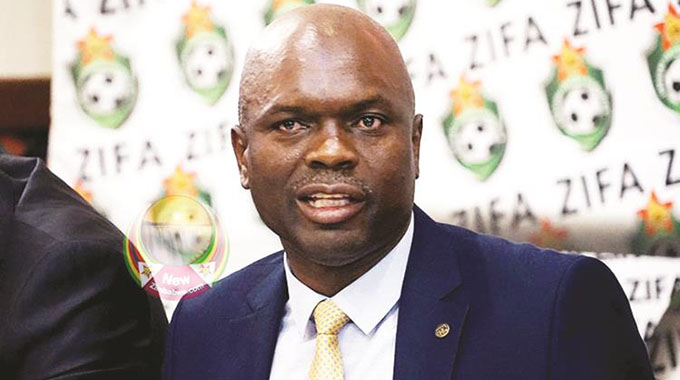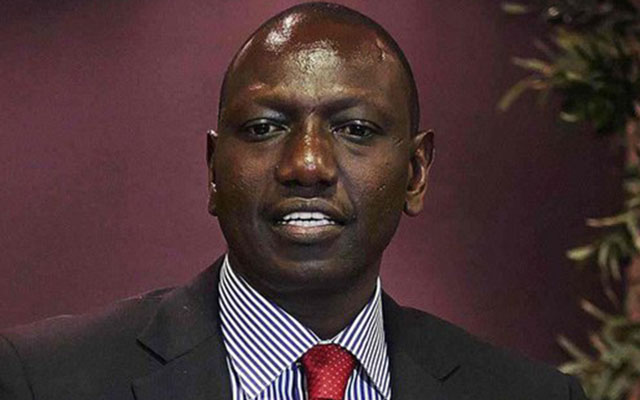Local authorities breeding corruption — Auditor General

Farirai Machivenyika Senior Reporter
While most local authorities continue to be bogged down by non-compliance with accounting standards, acting Auditor General Mrs Rhea Kujinga in her 2022 audit report found that major urban authorities had been misusing devolution funds, selling houses to managers and not providing basic infrastructure.
Some councils had misused their devolution funds and many councils presented accounts that did not explain how payments were authorised.
The report was last week tabled in Parliament as required by law.
“I noted that most findings in local authorities continue to be in respect of financial mismanagement, non-compliance with international Public Sector Accounting Standards and International Financial Reporting Standards and laws and regulations, untaxed benefits, lack of adequate controls over contract management and management of stands sales and poor service delivery,” she said.
While all local authorities have been receiving devolution funds so they can upgrade their capital spending and build, extend and repair infrastructure and their pool of capital equipment, some misused the money.
“I noted that some councils did not use the money as intended,” said Mrs Kujinga.
She said Bindura Municipality received devolution funds amounting to $34,2 million, however, $7,7 million was used for salaries and $19,2 million was invested at the expense of undertaking development projects.
Gokwe Town Council received $7,3 million in 2020, but could not provide approved plans of projects, internal audit report on acquittals, minutes of meetings of project consultations, documentary evidence of implementation of the projects.
Some of local authorities received disclaimer opinions; they could not provide any evidence that funds were used properly and among those hit by that damning opinion were Harare City Council, Hwange Local Board, Kusile Rural District Council, Mazowe Rural District Council, Mutasa Rural District Council and Nyaminyami Rural District Council.
“The lack of transparency on how these local authorities used public funds significantly compromised transparency and accountability and in turn affected service delivery to the public,” she said. “Governance issues dominated my findings as they increased from 91 in 2021 to 139 in 2022.
“The same have remained high in all my reports over the last five years. In 2021, Bindura Municipality committed $46,4 million with an asset management company as a short-term investment. However, this decision resulted in real value loss for the Municipality amounting to US$104 703. The municipality also had unreconciled cash and cash equivalent balances amounting to $25,8 million between the financial statements balance of $44 million and the balance as per bank statements of $69,3 million.”
Mrs Kujinga said there was a sharp increase in revenue collection and debt recovery issues from 11 to 101 between 2021 and 2022 as a result of weak internal controls in revenue collection and debt recovery.
“The number of reported procurement issues increased from eleven 11 in 2021 to 41 in 2022, an indication of weakening procurement management systems and non-compliance with procurement laws and regulations by local authorities,” she said.
“Gweru City Council had unsupported expenditure amounting to $5,4 million. In addition, there was an unresolved variance of $10,4 million between payables balance as per ledger of $70 million and listing balance of $59,6 million.
“Masvingo City Council did not adhere to proper procurement procedures as it changed contract terms on two occasions in favour of the suppliers yet the changes were not provided for in the contracts. The Council also directly procured the services of an auctioneer which was unjustified as required by the Public Procurement and Disposal of Public Assets Act.”
At Redcliff Municipality, there was a breach of contractual terms as the supplier did not deliver procured vehicles on agreed terms.
The supplier was contracted to deliver a FAW garbage collection truck valued at US$41 260, but instead supplied a Dong Fang garbage truck valued at US$57 819 while another vehicle was invoiced at US$75 000 but had a contractual value of US$42 414 among other irregularities.
“Kariba Municipality disposed of four Council houses to management without approval from the Ministry contrary to the Public Finance Management Act and the Public Procurement and Disposal of Public Assets Act,” Mrs Kujinga said.
She had reported 64 issues in respect of management of assets in her audit report, with Kadoma City Council losing 800 bags of cement as a result of solidification and inventory and equipment worth US$33 000 to theft.
Redcliff Municipality could not account for 109 boxes of floor tiles which were meant to rehabilitate the Bell Medical Centre.
On service delivery, she said the issues reported on were also rising.
“I reported 33 cases in 2021 and 41 in 2022. There were cases of sewer challenges in Victoria Falls City, Masvingo City, Bindura Municipality, Hwange Local Board, Ruwa Local Board and Chitungwiza Municipality,” Mrs Kujinga.
“In addition, during the 2021 – 2022 rainy season, some residents in Victoria Falls lost property as a result of flooding due to poor drainage systems.
“The existing infrastructure in local authorities was lagging behind to meet the growing demand for services. There was a backlog in both constructions of new infrastructure and maintenance of the existing facilities. The basic services include access to clean water, sanitation, health and good roads and these cannot be delivered without good infrastructure.”









Comments